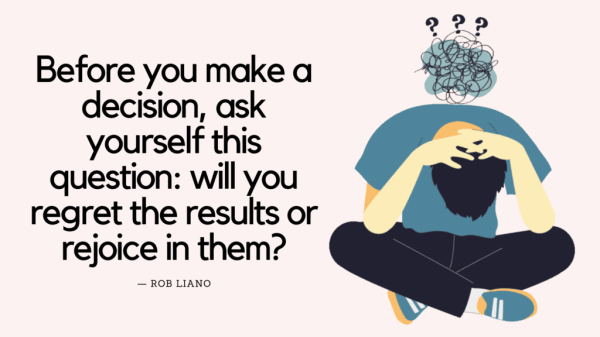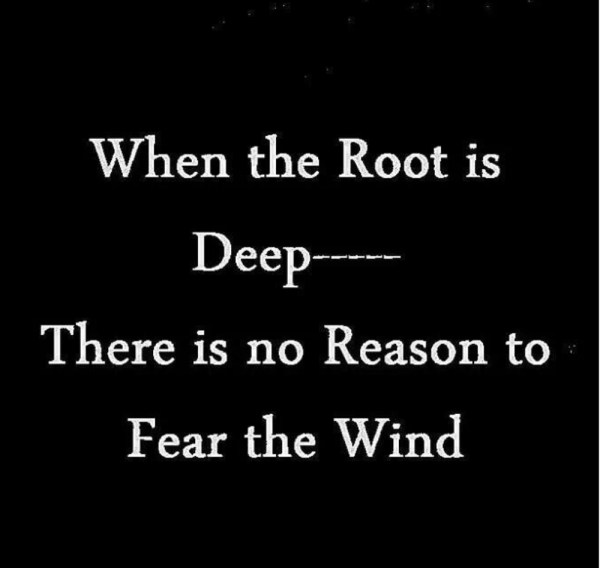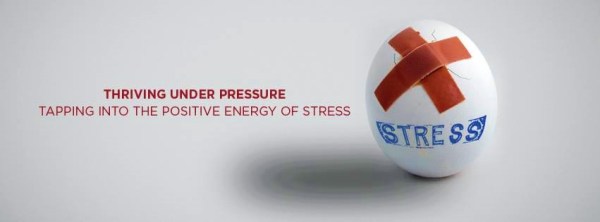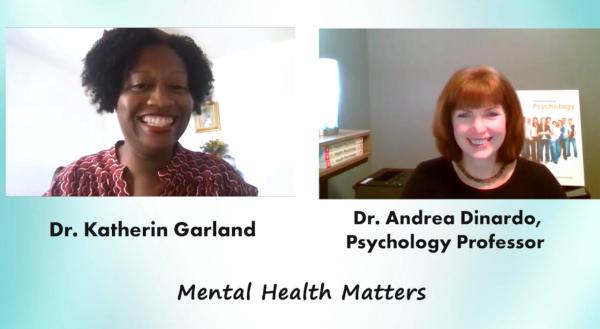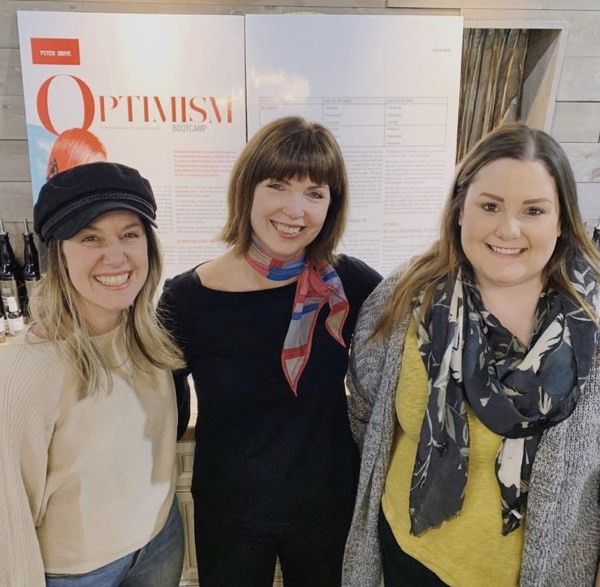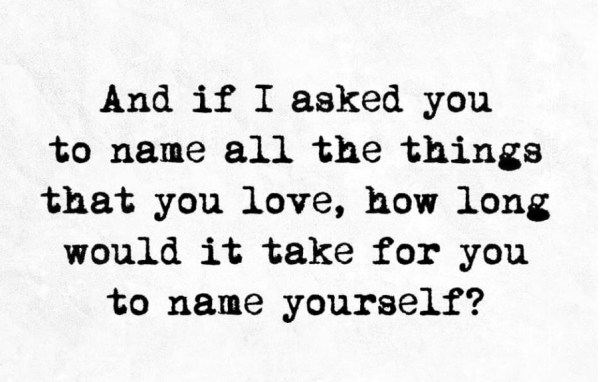When faced with a decision, ask yourself: Am I rushing the answer? Do I need to slow down? Am I being impulsive? Will I have regrets? Do I have all the information? Is it worth the wait? https://www.youtube.com/watch?v=rXZvf2_UHJ0 Reflection Questions 1. Do you consider yourself a patient person, an impatient person, an impulsive person? Does... Continue Reading →
One Word Vision for 2023
What’s your one word vision for 2023? Growth Space Peace Freedom Adventure Joy Empowerment https://youtu.be/2l6sO_77nw0
Free Your Soul
https://youtu.be/1dwCnVQhpQ4?si=4r9fjY0ii_Cw_QNc Soul Reflections ⚜️ What do you need to LET GO of to feel a sense well-being? ⚜️ Who and what do you no longer want to be OBLIGATED to? ⚜️ If you had only one year to live, what five things would you STOP doing? ⚜️ What JOY do you wish you had more... Continue Reading →
Staying Motivated During Challenging Times
Today’s story begins in the middle of a spin class. The point in time when you feel like giving up the most. Because the middle is always the hardest. Whether it be the middle of a semester, the middle of a week, or the middle of a year. It was thirty minutes into class, and... Continue Reading →
Empowering Conversations About Change
The Psychology of Change During this week’s health psychology lecture, we talked about the psychology of change, including the parts of our lives that remain ‘unchanged’ during rapid and unexpected change. What Remains During Change? The Sun Still Rises Coffee Tastes Delicious Trees Greet You on Your Walk Favourite Movie Still Delights Bed is Comfie... Continue Reading →
What helps you adapt to change?
What helps you adapt to rapid, unpredictable, unexpected change? I asked this question of student leaders at a province wide conference. See student answers on the chalkboard below: My answer on the chalkboard was: GO SMALLER One day at a time. One hour at a time. One class at a time. Microseconds sometimes.. https://youtu.be/rUWGr_GwzhM Your... Continue Reading →
What has 2020 awakened in you?
https://www.youtube.com/watch?v=nRxRpaWISMc How is everyone doing? How are you coping? How has your perception of yourself and the world evolved? How has 2020 transformed you? What do you believe is the higher purpose in all of this? I Am Waking Up After socially distancing and working full-time from home as a psychology professor (now online), I... Continue Reading →
Love is a Language – What’s Yours?
How do you express love? Take Quiz The 5 Love Languages Quiz for Singles: Click Here The 5 Love Languages Quiz for Couples: Click Here Paper Version of Quiz — Tap on Photo Below Love and Social Psychology One of the reasons I love teaching psychology is that it gives me the opportunity to share... Continue Reading →
What advice would you give your younger self?
ASK DR. D … ANYTHING! At a recent leadership conference, student leaders from St. Clair College's Student Representative Council SRC had the opportunity to ask questions live during the final portion of the training event. Questions & Reflections The student leaders raised the reflection bar high during this discussion period. One Question Stood Out The... Continue Reading →
2020 Life Lessons: Be Strong Enough To Be Gentle
Lockdowns have us spending a lot of extra time with the ones we love. Especially during the holidays. And if you’re anything like our household, it requires a whole new level of relationship skills. A deeper level of empathy and compassion for the pressures of the people we are living with. Helpful Tips: Psychology Today... Continue Reading →
Freedom is realizing you have a choice
Freedom doesn’t come from holding on. Freedom comes from letting go. Again and again and again. Universal Experience Too often we are hard on ourselves for having to release the same thought, emotion, person, or situation. When in fact that’s how life goes. For all of us. Letting go and surrendering are an ongoing daily... Continue Reading →
Situational Anxiety Interview
Mental Health Matters with Dr. Kathy Garland 1. Video Format of Interview https://www.youtube.com/watch?v=N7ttX6h_D8o&feature=youtu.be Watch on YouTube 2. Podcast Format of Interview https://soundcloud.com/user-240189621/mental-health-matters-dr-dinardo-and-situational-anxiety Listen on SoundCloud and Apple Podcasts Reflection Questions What did you learn about situational versus clinical anxiety from our interview? Can you relate to the personal example of heightened situational anxiety shared by Dr.... Continue Reading →
Acceptance: Your Peace Depends on It
Acceptance and peace go hand in hand. Watch Video — Click Here Consciously accept the good and the bad that exists in your life. The rain and the sunlight. The shadow and the light. Shift your focus. Change your life. Accepting what is does not lower the bar. Quite the opposite. Acceptance shines a spotlight on... Continue Reading →
Peer Pressure: What happened when I quit drinking?
Getting ready for my online summer courses which requires a lot of new psychology videos. Including video discussions on health, wellness, and personal empowerment. Similar to in person college classes, the goal is to stimulate active discussions and open communication. For example: Discussion Topic What happened when I quit drinking? https://www.youtube.com/watch?v=Ejpt6agt1tk Watch this short video... Continue Reading →
Let Your North Star Guide You
My Wish For You Today May you find peace in your home. And calm in your heart. No matter the storm. Psychology Thought for the Day The goal isn’t to get rid of all our negative thoughts and emotions. The goal is to change our response to them. To accept them without judgement. To transcend... Continue Reading →
Windsor Updates Spotlight
Community Spotlight Today I would like to shine a light on a local entrepreneur named Alex Binaei, the creative mind behind Windsor Updates and the video highlighted in this post. Adversity → Creativity Alex’s video for Windsor Updates is one of the best examples of how crisis and adversity create innovation and ingenuity. In both... Continue Reading →
What has COVID-19 awakened in you?
How is everyone doing? How are you coping with our universal global event? How has your perception of yourself and the world evolved? How has COVID-19 transformed you? What is the higher purpose in all of this? I Am Waking Up After socially distancing and working full-time from home as a psychology professor (now online),... Continue Reading →
Breathe
https://m.youtube.com/watch?v=zRSQw-LjU8k Every time we take a long deep breath, we are telling our bodies that we are safe. Each breath connecting our mind, body, and heart. Bringing us back to present time. 5 Breathing Techniques: Follow Your Breath Become aware of each inhalation and exhalation. Focus on the sensations you feel as air passes through... Continue Reading →
Emotional Freedom Technique for Social Anxiety & Imaginary Audience
Have you ever felt like you’re being watched? Judged and scrutinized. Like all eyes are on you and every potential error you make? Everyone experiences this phenomenon from time to time, especially when trying out something for the first time. Think back to the first time you gave a dinner party, swung a golf club,... Continue Reading →
FOMO ANXIETY Simple Tips for Feeling Better
This post is for anyone experiencing FOMO. Particularly on a long weekend holiday! https://m.youtube.com/watch?v=I2P5VhC-Ih8 Psychology Insight: Holidays heighten social anxiety of every kind. FOMO especially. Consider these questions as you explore what’s going on below the surface. 1. Do you remember the first time you experienced FOMO? 2. How did you cope with the anxiety... Continue Reading →
The Happiness Class
Reflections on Happiness One of my favourite things to do as a professor is to stay after class and talk to students about what hit home for them about each week’s lecture. Fresh Perspective Students look at the world in a very unique way. Motivating me to think about psychology at a whole different level.... Continue Reading →
5 Love Languages: Social Psychology Class
Social Psychology Class Part 1: Before Class Preparations https://www.youtube.com/watch?v=HAbH9tKzJhA Part 2: After Class Reflections https://www.youtube.com/watch?v=Vfwz7JVkgLU Your Turn What's your love language? What do you value in relationships?
Empathic Listening: How Can I Support You?
How do you respond when a close friend shares a problem with you? Are you a fixer or a listener? If you’re anything like me, my first instinct is to fix the problem. To try and save loved ones from adversity. To rescue them. To make them instantly feel better. I suggest we do the... Continue Reading →
WHY change NOW?
https://www.youtube.com/watch?v=rUWGr_GwzhM&app=desktop The first question I ask clients wanting to make a change is “Why Now?” For there is no doubt that they (and you and I) have been wanting to transform an aspect of our lives for a very long time. But the intrinsic motivation just isn’t quite there. The kind of motivation that is... Continue Reading →
Reading People: Lesson #1 Self Awareness
"The simple act of paying attention can take you a long, long way." Intrapersonal Intelligence ⇔ Interpersonal Intelligence The first lesson in reading people, using the principles of emotional intelligence, is to understand yourself more deeply. What motivates you. What excites you. What angers you. What lifts you up! As self-awareness is essential for both... Continue Reading →
Psychology 101: Ask Dr. D.
Getting to know my students is one of my favourite parts being a professor. Accordingly, I ask students a lot of questions. So it’s only fair that students get to ask me questions too! Why did you become a psychologist? 🎥 https://m.youtube.com/watch?v=GSJDKR07hDw What’s most interesting about being a college professor? 🎥 https://m.youtube.com/watch?v=NieGvwEkkEI I would love... Continue Reading →
Health and Happiness
Reflection Questions 1. When someone asks you "What makes you happy?" does your answer differ from "What makes you healthy?" https://youtu.be/LgACYyFv2YQ 2. Do you consider your health requirements essential and your happiness needs selfish and superfluous? 3. Or do you rate health and happiness as equal and interdependent. https://youtu.be/z_DNIWYh6vE For me: health and happiness are... Continue Reading →
Love begins within
Show yourself some love today. Your health and happiness depend on it. ♥️ Related Post: From Fear to Love
How will you move the world today?
What are you most excited about in your life right now? What brings a smile to your face and makes your heart skip a beat? Each time you share your zest for life — you move the world ! Related Post: Enthusiasm is contagious.
What’s your 2017 highlight?
“Time spent in reflection is never wasted.” My highlight of 2017 and every year since 2003 has been teaching psychology at St. Clair College. I am so grateful for all the incredible students I’ve had the pleasure to meet and teach. It has been a long and bumpy road to get here. But I wouldn’t... Continue Reading →
